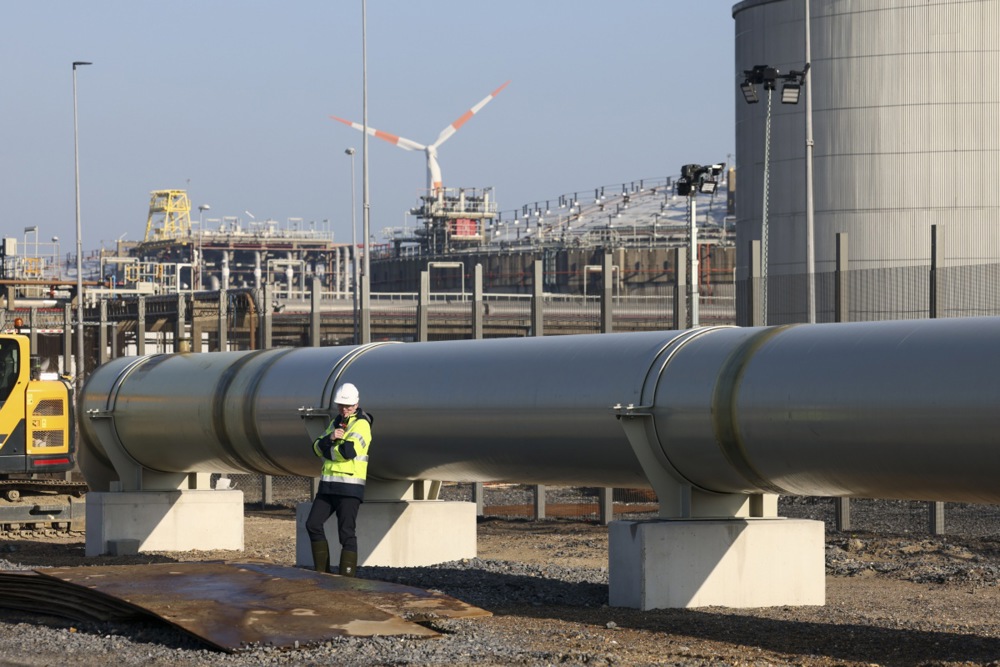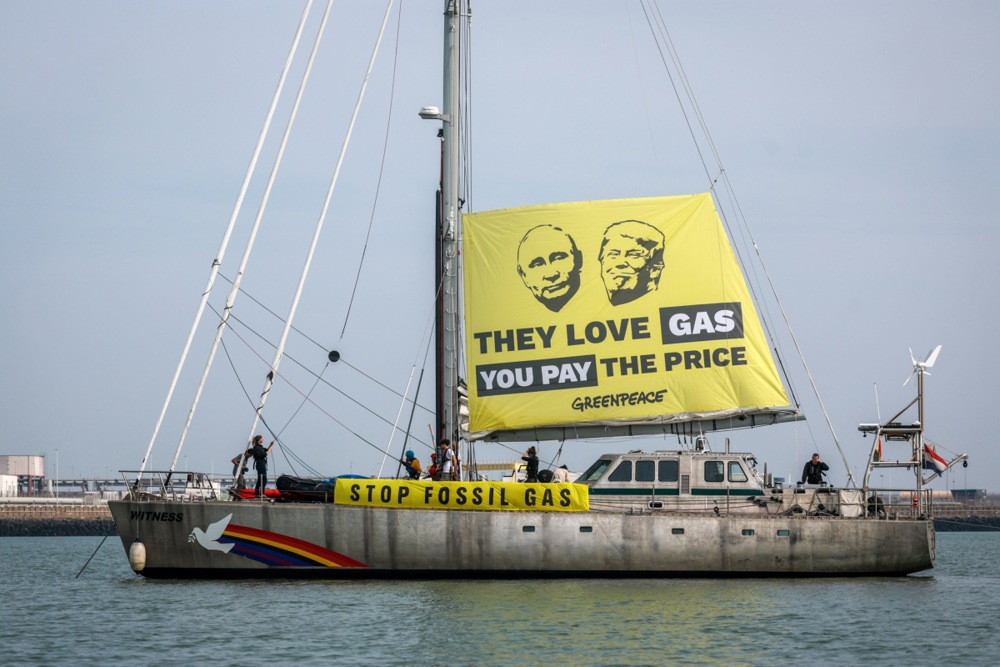European Union ban on re-exporting Russian liquefied natural gas (LNG) via ships operating outside the bloc has so far failed to reduce overall imports of the fuel.
The “transhipment” ban, approved in June 2024, prohibited the re-export of Russian LNG through EU waters and blocked new investments and services linked to LNG production projects in Russia. The European Commission said the measures were intended to curb the Kremlin’s energy revenues and raise the cost of its war against Ukraine.
In a report published today, the Commission said the EU had reduced the share of Russian pipeline gas in its imports from 45% in 2021 to 12% by August 2025. However, the decline applies only to pipeline deliveries.
The latest data show that imports of Russian LNG — 28% of which pass through Belgium’s Zeebrugge terminal, one of Europe’s main import hubs — continued to rise in the first half of 2025. France accounted for 41% of these shipments.
While part of the Russian pipeline gas has been replaced by supplies from other sources, this has not yet been the case for LNG.
Belgian energy minister Mathieu Bihet said his country has “supported Repower EU”, the bloc’s plan to move away from Russian energy.
“It was under our presidency of the Council of the EU that Repower EU was initiated”, he told Brussels Signal at the World Nuclear Exhibition in Paris on November 4.
But as shipments of LNG continue to arrive in European ports, including Zeebrugge, the impact of the transhipment ban has yet to have an impact.
The ban “is in all the texts and at the European Council in October in Luxembourg, I was there, and we reaffirmed our support”, Bihet said.
For several years, the Zeebrugge terminal re-exported Russian LNG to non-EU countries. Under the 14th sanctions package, that practice is now banned, forcing the gas to remain within European markets.
Belgium’s terminal operates under long-term contracts, including one between natural gas transmission system operator Fluxys and Russia’s Yamal LNG until the 2030s.
Fluxys’s long-term contract with Yamal LNG places the operator in a legally uncertain position: Once the ban takes effect, it may be unable to fulfil its obligations, potentially facing claims for damages.
The Belgian operator said it has not yet received the official legal text and will review the impact on long-term contracts before implementing the sanctions, Le Soir reported on November 4.
The EU has pledged to phase out Russian energy with successive sanctions tightening rules on imports. On 16 October, a European Parliament majority voted to advance the full ban on Russian oil to January 2026 and on gas to January 1 2027. The decision still requires approval from member states.
“On the one hand, there is Repower, but on the other hand, there is the 19th package of sanctions; these are two completely different things,” Bihet said.
He described the latest package as a direct response to Russia’s war in Ukraine, while Repower EU “is really about how we re-power the EU, how we change our paradigm of energy consumption”.
He added that Russian LNG imports “are expected to stop; that is in the texts of the 19th package”.
The 19th package prohibits short-term Russian LNG contracts six months after formal adoption, and bans long-term contracts from 1 January 2027, a year ahead of the planned phase-out.
Belgium has prepared a surveillance system for incoming cargoes, based on certificates of origin and traceability of volumes, to ensure Russian LNG is not reloaded on to ships bound for non-EU ports.
When asked whether the effects of the ban would soon be felt, Bihet said: “It’s planned, and we supported it.”





